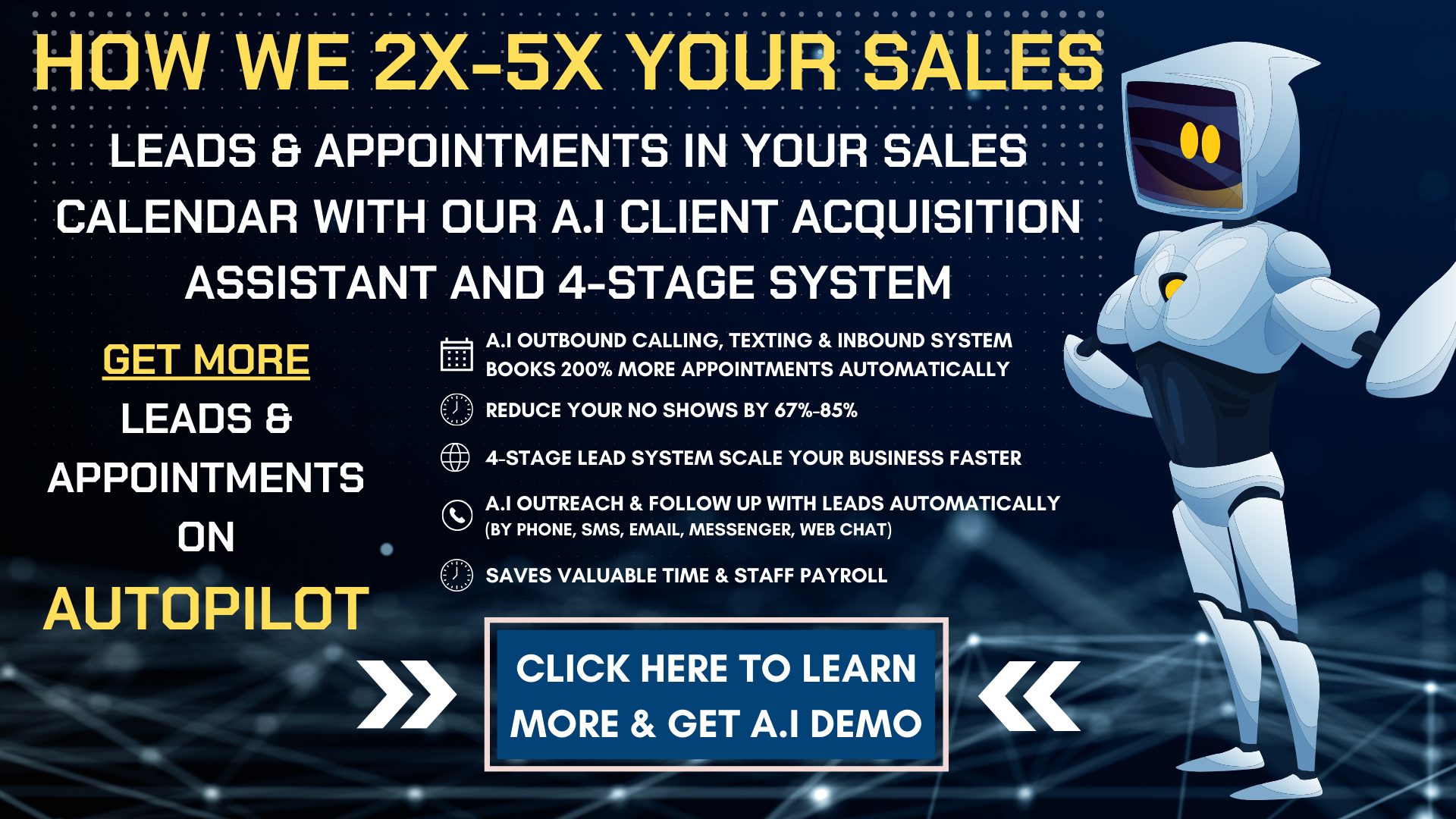Lead generation is essential for the success of any small business. In fact, 91% of marketers believe that lead generation is the most important factor for their business. Small business lead generation involves finding and attracting potential customers who may be interested in the products or services that your business offers. In this article, we will explore effective lead generation strategies and techniques specifically designed for small businesses.
Key Takeaways
- Lead generation is crucial for small businesses to ensure a consistent stream of potential customers.
- Effective lead generation strategies help build stronger relationships with prospects and convert them into buyers.
- Adopting a multi-channel approach can maximize lead generation for small businesses.
- Utilizing CRM systems can effectively manage and organize leads for better follow-ups.
- Content marketing and online advertising play significant roles in generating leads for small businesses.
Why Lead Generation is Important for Small Businesses
Lead generation is crucial for small businesses for several reasons:
- It ensures a consistent stream of leads, attracting potential customers who are interested in your offerings.
- It allows you to build stronger relationships with your prospects, understanding their needs and providing tailored solutions.
- Lead generation strategies help convert prospects into buyers, resulting in more sales and fueling business growth in the long run.
“Effective lead generation is the lifeblood of any small business. Without a steady flow of leads, a business cannot thrive or expand. It is the foundation upon which successful marketing campaigns are built and plays a pivotal role in driving revenue growth.” – Jane Smith, Marketing Expert
By implementing effective lead generation techniques, small businesses can increase their chances of success and outperform their competitors. It is crucial to adopt a proactive approach and utilize various channels to attract and engage potential customers.
One effective strategy is to create compelling and relevant content that addresses the pain points of your target audience. By offering valuable insights, solutions, and educational resources, you can position your brand as a trusted authority, attract leads, and nurture them into loyal customers.
Another crucial aspect of lead generation is leveraging the power of social media. Building a strong presence on platforms like Facebook, Twitter, and LinkedIn can help you reach a wider audience and engage with potential customers on a more personal level.
“Small businesses can significantly benefit from effective lead generation techniques. It allows them to reach their target audience, showcase their offerings, and build meaningful connections. By investing time and resources into lead generation, small businesses can experience increased sales and sustainable growth.” – Mike Johnson, Small Business Consultant
It is essential for small businesses to continuously evaluate and optimize their lead generation strategies to ensure maximum effectiveness. By monitoring key metrics and analyzing the results, you can identify areas for improvement and refine your approach to generate even better results.
| Benefits of Effective Lead Generation for Small Businesses |
|---|
| Increase sales and revenue |
| Build brand awareness and credibility |
| Expand customer base and market reach |
| Enhance customer relationships and loyalty |
| Stay ahead of competitors |
14 Best Ways to Generate More Leads For Your Small Business
To generate leads effectively, it is important to adopt a multi-channel approach. Here are 14 effective lead generation strategies for small businesses:
- Optimize your website for lead generation: Ensure your website is user-friendly, mobile-responsive, and optimized for search engines. Capture visitor information with prominent call-to-action buttons and lead capture forms.
- Create compelling content: Develop high-quality, relevant content that addresses your target audience’s pain points and provides valuable solutions. Utilize blog posts, videos, and social media content to attract and engage potential leads.
- Use social media advertising: Leverage platforms like Facebook, Instagram, and LinkedIn to target specific demographics and promote your products or services. Create attention-grabbing ad campaigns to capture the interest of potential leads.
- Run email marketing campaigns: Build an email list of potential leads and send regular newsletters, updates, and promotions. Personalize your emails and include strong call-to-action buttons to encourage lead conversion.
- Implement search engine optimization (SEO) techniques: Optimize your website and content with relevant keywords, meta tags, and alt tags. This will improve your website’s visibility in search engine results and attract organic traffic.
- Participate in industry events and conferences: Attend trade shows, conferences, and exhibitions relevant to your industry. Network with industry professionals to build relationships and generate potential leads.
- Offer free resources or downloads: Create valuable resources such as e-books, whitepapers, or templates that address the needs of your target audience. Offer them for free in exchange for visitors’ contact information.
- Collaborate with influencers: Partner with influential individuals or brands in your industry to reach a wider audience. Get them to promote your products or services to their followers, generating potential leads.
- Utilize online directories: List your business on popular online directories and review platforms. This will increase your online visibility and attract potential leads who are actively looking for products or services in your industry.
- Host webinars or live events: Organize online webinars or live events where you can share valuable insights and interact with your target audience. Collect attendee information to generate potential leads.
- Offer referral incentives: Encourage your satisfied customers to refer your business to their friends and colleagues by offering referral incentives such as discounts or rewards. This can help generate high-quality leads through word-of-mouth.
- Implement chatbots on your website: Use AI-powered chatbots to engage with website visitors and capture their contact information. Chatbots can provide instant assistance and collect data for lead generation.
- Collaborate with complementary businesses: Partner with businesses that offer complementary products or services to yours. Cross-promote each other to reach a wider audience and generate potential leads.
- Monitor and analyze your lead generation efforts: Regularly track and analyze the performance of your lead generation strategies. Identify what works and what doesn’t, and make necessary adjustments to optimize your results.
By implementing these lead generation strategies, your small business can attract and convert a steady flow of high-quality leads, driving growth and success.

How to Use Customer Relationship Management (CRM) Systems for Lead Generation
Customer Relationship Management (CRM) systems are powerful tools for lead generation. They enable businesses to effectively manage and track customer interactions, store contact information, and automate lead nurturing processes. By utilizing a CRM system, small businesses can streamline their lead generation efforts and maximize their chances of converting prospects into customers.
One of the key advantages of using a CRM system for lead generation is the ability to manage and organize leads more efficiently. With a centralized database, you can keep track of all your leads and their relevant information, such as contact details, interactions, and conversion status. This allows you to prioritize and focus on the most promising leads, increasing the efficiency of your sales process.
CRM systems also provide valuable insights into lead behavior and preferences. By analyzing customer data and tracking their engagement with your business, you can gain a better understanding of their needs and preferences. This information can be used to personalize your communication and tailor your offerings, increasing the chances of converting leads into customers.
Additionally, CRM systems facilitate timely and personalized follow-ups with leads. With automated workflows and reminders, you can ensure that no lead falls through the cracks. Follow-up activities such as email outreach, phone calls, or targeted marketing campaigns can be scheduled and tracked, improving your lead conversion rates and overall sales performance.
Many CRM systems offer integrations with other lead generation tools and platforms, such as email marketing software, lead capture forms, and analytics tools. These integrations allow for seamless data sharing and improve the overall effectiveness of your lead generation efforts.
Here are some popular CRM tools for small businesses:
- Saleshandy
- HubSpot
- Yesware
- Leadfeeder
- Unbounce
By utilizing the right CRM system and integrating it with other lead generation tools, small businesses can effectively manage their leads, optimize their sales processes, and generate sustainable growth.
Key benefits of using a CRM system for lead generation:
“The use of a CRM system for lead generation empowers small businesses to efficiently manage leads, personalize communication, and improve conversion rates.”
The Importance of Content Marketing in Lead Generation
Content marketing is an essential strategy for lead generation. By creating valuable and relevant content, businesses can attract potential customers and establish themselves as trusted sources of information in their industries. Whether it’s through blog posts, articles, videos, or social media content, a well-executed content marketing strategy can significantly contribute to building brand awareness, nurturing relationships, and generating leads.
To effectively use content marketing for lead generation, it’s crucial to create high-quality content that addresses your target audience’s pain points and offers valuable solutions. By understanding your audience’s needs and interests, you can tailor your content to resonate with them and position your business as a go-to resource.
Strong calls to action (CTAs) are essential for encouraging lead generation through content marketing. Your CTAs should be clear, compelling, and relevant to the content at hand. Whether it’s inviting readers to sign up for a free e-book, attend a webinar, or subscribe to your newsletter, a well-placed CTA can help convert readers into leads.
Content marketing for lead generation also involves leveraging various channels and formats. For example, blog posts can provide in-depth information and insights, while videos can engage and educate your audience visually. By diversifying your content and reaching potential customers through different channels, you can maximize your lead generation efforts.

Implementing an effective content marketing strategy requires consistent effort and an understanding of your target audience. By creating valuable content, addressing pain points, and incorporating strong CTAs, you can leverage content marketing to generate high-quality leads for your small business.
Leveraging Online Advertising for Lead Generation
Online advertising is an effective strategy to generate leads for small businesses. By utilizing platforms like Google Ads, Facebook Ads, and LinkedIn Ads, you can target specific demographics and reach potential customers who may be interested in your products or services.
With online advertising, you have the ability to precisely target your audience based on their location, interests, and behavior, ensuring that your ads are seen by the right people. This targeted approach increases the chances of attracting high-quality leads who are more likely to convert into customers.
To make the most out of your online advertising campaigns, it is important to create compelling ad copy that grabs attention and entices users to click. Utilize relevant keywords in your ad copy to optimize visibility and increase the chances of appearing in relevant search queries.
Testing different variations of your ads can also help you optimize your advertising efforts and improve lead generation. By analyzing the performance of different ad creatives, headlines, and calls to action, you can identify what resonates best with your target audience and make data-driven decisions to enhance your campaigns.
Measuring the results of your online advertising campaigns is crucial. Utilize the analytics tools provided by the advertising platforms to track key metrics such as impressions, clicks, and conversions. These insights can help you understand the effectiveness of your campaigns and refine your strategies for better lead generation.
Conclusion
Effective lead generation techniques are essential for the growth and success of small businesses. By implementing strategies such as cold emailing, content marketing, networking, and utilizing CRM systems, small businesses can generate high-quality leads and nurture them into loyal customers.
Cold emailing is a powerful lead generation strategy that involves reaching out to potential customers via email. By crafting personalized and compelling messages, small businesses can pique the interest of their target audience and convert them into leads.
Content marketing is another effective technique for lead generation. Creating valuable and relevant content, such as blog posts, articles, videos, and social media content, helps small businesses establish themselves as trusted sources of information. By addressing their target audience’s pain points and offering solutions, small businesses can attract potential customers and drive lead generation.
In addition, networking plays a vital role in lead generation for small businesses. Building strong relationships with industry professionals, attending events, and leveraging social media platforms can help small businesses expand their network and connect with potential customers.
Finally, utilizing Customer Relationship Management (CRM) systems is crucial for organizing and tracking leads. By managing customer interactions, storing contact information, and automating lead nurturing processes, small businesses can efficiently manage their leads and ensure personalized follow-up. Popular CRM tools like Saleshandy, HubSpot, and Leadfeeder can further enhance lead generation efforts.
To stay ahead of the competition and drive business growth, small businesses need to continuously analyze and optimize their lead generation strategies. By monitoring key metrics, testing different approaches, and making informed adjustments, small businesses can maximize their lead generation efforts and achieve long-term success.
FAQ
What is lead generation?
Lead generation is the process of finding and attracting potential customers who may be interested in your products or services.
Why is lead generation important for small businesses?
Lead generation is crucial for small businesses as it ensures a consistent stream of potential customers, helps build stronger relationships with prospects, and ultimately leads to increased sales and business growth.
What are some effective lead generation strategies for small businesses?
Some effective lead generation strategies for small businesses include customer relationship management (CRM) systems, content marketing, online advertising, networking, and utilizing social media platforms.
How can customer relationship management (CRM) systems be used for lead generation?
CRM systems help businesses manage and track customer interactions, store contact information, and automate lead nurturing processes. They allow for effective lead management, progress tracking, and timely follow-ups, resulting in improved lead generation.
Why is content marketing important for lead generation?
Content marketing helps attract potential customers by providing valuable and relevant content. It establishes your brand as a trusted source of information and helps nurture relationships with prospects, ultimately driving lead generation.
How can online advertising be leveraged for lead generation?
Online advertising platforms like Google Ads, Facebook Ads, and LinkedIn Ads allow you to target specific demographics and reach potential customers. By creating compelling ad copy and utilizing relevant keywords, you can optimize your campaigns for better lead generation.
What is the importance of analyzing and optimizing lead generation efforts?
Regularly analyzing and optimizing lead generation efforts helps you stay ahead of the competition and drive business growth. By understanding what strategies and techniques are yielding the best results, you can continuously improve your lead generation efforts.






